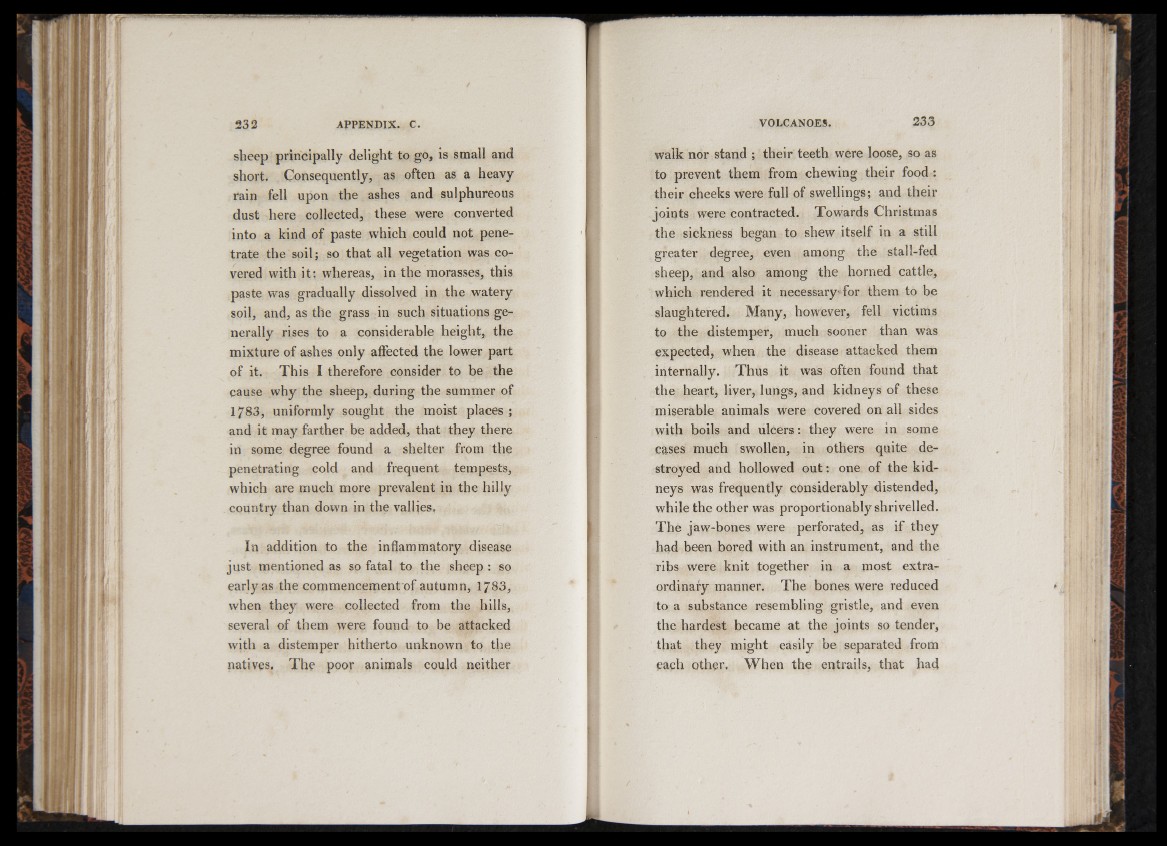
sheep principally delight to go, is small and
short. Consequently, as often as a heavy
rain fell upon the ashes and sulphureous
dust here collected, these were converted
into a kind of paste which could not penetrate
the soil; so that all vegetation was covered
with it: whereas, in the morasses, this
paste was gradually dissolved in the watery
soil, and, as the grass in such situations generally
rises to a considerable height, the
mixture of ashes only affected the lower part
of it. This I therefore consider to be the
cause why the sheep, during the summer of
1783, uniformly sought the moist places ;
and it may farther be added, that they there
in some degree found a shelter from the
penetrating cold and frequent tempests,
which are much more prevalent in the hiliy
country than down in the vallies.
In addition to the inflammatory disease
just mentioned as so fatal to the sheep: so
early as the commencement of autumn, 1783,
when they were collected from the hills,
several of them were found to be attacked
with a distemper hitherto unknown to the
natives. The poor animals could neither
walk nor stand ; their teeth were loose, so as
to prevent them from chewing their food :
their cheeks were full of swellings; and their
joints were contracted. Towards Christmas
the sickness began to shew itself in a still
greater degree, even among the stall-fed
sheep, and also among the horned cattle,
which rendered it necessary" for them to be
slaughtered. Many, however, fell victims
to the distemper, much sooner than was
expected, when the disease attacked them
internally. Thus it was often found that
the heart, liver, lungs, and kidneys of these
miserable animals were covered on all sides
with boils and ulcers: they were in some
cases much swollen, in others quite destroyed
and hollowed o u t: one of the kidneys
was frequently considerably distended,
while the other was proportionably shrivelled.
The jaw-bones were perforated, as if they
had been bored with an instrument, and the
ribs were knit together in a most extraordinary
manner. The bones were reduced
to a substance resembling gristle, and even
the hardest became at the joints so tender,
that they might easily be separated from
each other. When the entrails, that had